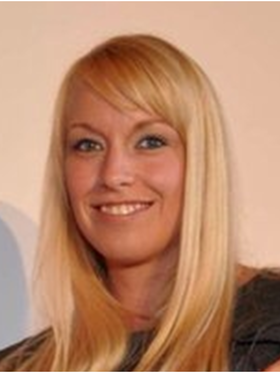
Victoria Watson of LSTM’s Department of International Public Health talks about her Director’s Catalyst Fund (DCF) experience and the impact it has had on her subsequent career.
The idea for my DCF project came from my post-doctoral research on the Unitaid-funded HIV Self-Testing in Africa (STAR) initiative, the largest HIV self-testing project in the world. Globally it is estimated that 37.7 million people were living with HIV in 2020 and about 6.1 million of these do not know they have the virus. This is why it is vital to increase uptake of testing, allowing people to make informed decisions about their health needs and access treatment. STAR had been really successful so I thought if we can increase HIV testing uptake using self-tests in Africa then why can't we do it in Liverpool?
HIV is a cross cutting theme, hitting both the global north and the global south, and it was really important to me to bring the skills and experience I’d gained working with people in Africa to benefit our local community. My proposal also fitted well with LSTM’s aim to increase its work and visibility within the Liverpool community – one of the poorest in the country - and to use its research to improve the health of local people.
Working in the community
My DCF project was called ‘Uptake of HIV testing within minority ethnic communities in Liverpool’ and it specifically aimed to reach untested people and address the current health inequality in underserved groups. Work began in 2019, and the first part of the project involved listening to local communities and understanding the barriers to people testing for HIV. It was quickly obvious that there is a lack of knowledge about HIV as it just isn’t spoken about openly. Unfortunately, there is still a high level of stigma attached to a diagnosis, and community members told us that didn't want to go to sexual health clinics for testing because of confidentiality concerns. So, I got the Liverpool Community Pharmacy Committee involved and negotiated people being able to collect free HIV self-test kits from their local community chemists.
Unfortunately, COVID then hit and the country went into lockdown. However, once services began to reopen we started advertising the programme using posters in barber shops, cafes etc, and also via social media platforms, and for two months people could collect free HIV self-tests from six local chemists across Liverpool. Analysis showed that 53% of those tests were used by first time users; people who had never tested for HIV before and wouldn't have gone to a clinic for a test. A further 25% of testers had last tested more than a year ago. This increase in testing uptake and empowering people with the knowledge of their HIV status proved to be a great success!
The benefits of DCF
Overall, my DCF project has been a huge learning curve for me, and there have been so many positives. First, it has given me the project management skills and experience to successfully apply for a much larger grant. I've been awarded $2.2 million to lead a multi-country HIV self-testing evaluation. The skills that I developed working with key stakeholders in Liverpool, such as public health and NHS consultants, have really helped me to network and build relationships with the partner institutes in Africa.
Also, the DCF application process itself is basically the same as you find for most external grant submissions - putting your application and budget together, undergoing an interview etc – an experience which stands you in good stead for future fundraising. Without my DCF project experience I would not have had the networking skills, the leadership confidence, the financial experience, or the personal resilience to have won this further award.